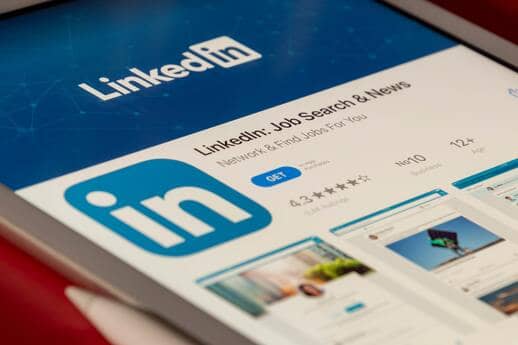Embarking on a new career can be an exciting prospect. It can also be daunting, and cause anxiety. If you want to make a success of your transition into a new career, you’ll need to consider several factors before committing yourself to a course of action. The following information will discuss seven key things that you should consider if you’re thinking about changing careers.
How Happy Are You in Your Current Role?
At the outset of your decision-making process, you need to do some serious soul-searching about your current level of satisfaction. One preliminary question to ask yourself is: “Would I be willing to go to work if I didn’t get paid?” If the answer is no, then it’s time to start digging deeper into your motivations.
Interestingly, research has shown that more money does not necessarily equal a “happiness boost” after income passes the $75,000/yr mark. What this means is, you need to think in terms other than the purely financial. You should ask yourself: “What is missing from my current job or career that would increase my happiness?” The answer to this question can serve as a guideline for your career search going forward.
Have You Updated Your Resume?
Your resume will form one of the earliest impressions on prospective employers. It will give insight into who you are, what you’ve accomplished, and what you can offer. A neat, professional resume is important in any job hunt.
If you’re serious about extending yourself and looking for a change of direction in your working life, then you may want to take the time to update and improve your resume. You could also consider enlisting the services of a professional resume writing company. They can help you to format your resume properly, explain any relevant gaps in employment history effectively, and highlight your strengths as a candidate.

Do You Have an Exceptional LinkedIn Profile?
At the start of 2020, there were some 160 million LinkedIn users in the United States alone. While there were several million more in other countries. Due to its widespread reach within the professional crowd, LinkedIn is an excellent resource for promoting yourself as a viable job candidate. Of course, you need to make sure that your LinkedIn profile shows you in your best light. Make sure it’s up-to-date, neat, professional, and highlights your skills and experience in the best possible way.
What Do You Need to Be Happy in Your New Career?
They say that going on a journey without a destination is the fastest way to lose yourself. In the context of a career change, this principle holds true: you need to clearly identify what are the top five things that your next job or career must have in order for you to be happy and productive. You should sit down and map out exactly what you’re looking for. Maybe you’re looking for a position that allows you to use your unique skill set, or you want to work with a company that is an ideal cultural match for your values and personality.
You should also use a tool to help you analyze any job offers that come your way. As you go down the checklist, any job that doesn’t meet a certain threshold (say, 7 out of 10 items) should be thrown out with no regrets.
Do You Have the Necessary Skills Needed to Change Careers?
There are some careers that you can transition into easily. If you can identify your transferrable skills and how what you’ve learned in your current position could translate into your preferred position, you should be in great shape to change careers. However, there are some career transitions that will require you to learn new skills or hone in on existing skills. This will ensure you’re qualified for the new role.
If there’s a specific career field you’re looking into, look through some job postings in your area and at the skill level you think you are or will be qualified for. Then make a list of the following:
- list the skills you currently have and have mastered
- determine the skills you have but need to continue to develop. E.g., maybe the company requires you have an expert-level understanding of Excel but you only have a beginner’s level understanding
- then list the skills you lack completely
Once you’ve made this list, you’ll be better equipped to determine your course of action. Maybe you need to enroll in a specific course to bridge the skills gap. Maybe you want to transition from a marketing career to tech career. If this is the case, you should consider a job training program. Job training programs allow you to learn the necessary job skills fast and affordably.
The most important thing is that you have the determination and will to do what it takes to become a qualified prospect for your new career.

Are You Using All of Your Resources?
Finding your perfect next career can take time and creativity. You may need to step outside of your comfort zone to make your vision a reality. Here are some points to consider:
• Have you reached out to your network of trusted friends and professional acquaintances to let them know of your desire to switch tracks? They may be able to send leads for open positions your way.
• Have you partnered with a job search firm or staffing agency? Of course, you’ll want to work with a firm that offers the best chance to land you a career you’ll love. You should also look into a firm that specializes in the industry in which you’re interested. Most reputable firms won’t charge a fee for their services and will keep your name and information confidential. They also won’t present your resume to a prospective employer without your permission. Instead, they can serve as “another pair of eyes” in your quest for a new career and provide you with helpful career coaching on a number of areas related to your job search. These could be areas such as the interview process, the types of interview that you may encounter as well as how to appropriately follow up after each interview.
• Have you fully utilized the job boards available to you? You should keep in mind that some job search engines have a very broad scope for their listings (think Indeed or Monster), whereas others may yield more value in your search due to their specialized focus.
Have You Touched Based With Your References?
Even if you are currently employed and want to keep your ambitions to leave under the radar, it’s a good idea to get in contact with previous supervisors and managers for permission to use them as references during your search. Let them know you’re changing careers and help them understand how your previous experience fits into your desired career. Any hiring manager or recruiter worth his salt will want to see your references before making a final decision; after all, candidates with no references are often (understandably) considered high-risk prospects.
If you have your references already in hand, this may not only speed up the hiring process, but may also indicate to the recruiter that you are the type of person that “stays on top of things.”
Key Takeway About Changing Careers
If you have clear, satisfying answers to the seven questions discussed above, then you’re in a great position to successfully change careers. Continue to revisit these questions on occasion and persevere in your efforts. You’ll no doubt enjoy a more engaging and fulfilling career path as a result.



